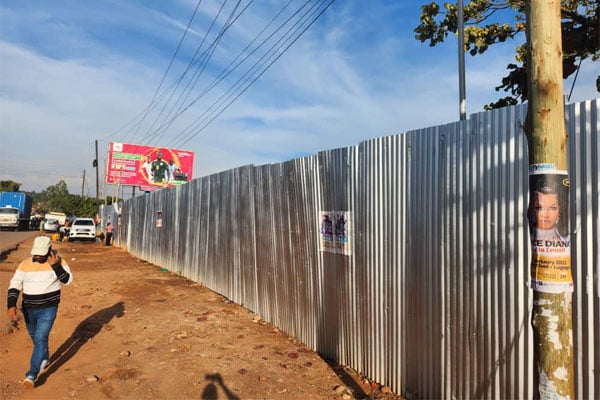A new sophisticated brand boosts Starcafe

You will not miss it as you make the rounds in supermarkets and shops because it has got a sophisticated and classy look. Wrapped in a fading red, maroon, chocolate and black tin, Star Café Premium is the latest addition to the range of products produced by Starcafe Limited – a local coffee company.
“Our hope is to re-position Star Café as a Ugandan Brand. We have weathered all difficulties and have been very silent. We are now coming out in the open to show people what we are doing,” Mr Elijah K’angara, the general manager of Star Café says.
The world saw a fall in the prices of green coffee between 1998 and 1999. As many companies in Uganda closed shop, Mr Ishak Lukenge, a coffee trader exploited this opportunity and emerged with Starcafé as Uganda’s pioneer coffee processing company.
Processing coffee, according to him, would promote the consumption culture at home and it would also fetch a premium price at the international market, unlike the green beans.
Exporting green coffee beans would fetch about $2-$3 yet processed coffee would fetch $25-$30 per kilogramme.
The company started with roasting coffee in 2000 and after two-years, it went into instant coffee under the brand name ‘Star Coffee’, which has been a household name in many homes, supermarket shelves and hotels.
However, the country did not have a processing facility to turn the coffee into an instant beverage and this is why the company was outsourcing this service from Tanzania, according to Mr K’angara.
By then, Africa had only four plants, in Tanzania, Côte d’Ivoire, South Africa and Egypt.“We would take a container of coffee, process it and then bring it back for packaging and distribution to the various supermarkets,” Mr K’angara explains.
When the international price started picking, however, the Tanzanian company revisited its price policy upwards forcing Starcafe to start processing its coffee from Egypt up-to-date.
Just to maintain consistence in their quality, the company has weathered the costly outsourcing in Egypt. Even the recent attacks by Somali pirates in the Indian Ocean have not stopped them from operation. They have instead opted for a longer and expensive route through Durban-Cairo to keep in business.
“It takes us about 42-48 days for a container to dock in Egypt unlike the other Mombasa-Somali route which used to take two-three days to ship a container to Egypt,” Mr K’angara explains.
This journey alone in freight charges cost them $10,000 (Shs20 million) for each 20-feet container. On average, the company to operate efficiently has three shipments of eight containers in transit.
“We make sure that when a shipment of eight containers is docking in Egypt, the second one is in the middle of the journey and the third is preparing to leave Uganda,” Mr K’angara adds.
However, this would have been done away with if they had money to set up a processing plant in Uganda. To establish an instant coffee processing plant would require not less than $30 million, which is too expensive.
“This would be easy if the government intervenes as partners to establish such a plant in Uganda,” Mr K’angara says.
Market
Because Uganda’s coffee is unique and of high quality, the company has been receiving huge orders of instant coffee from Europe.
“Customers have always been ordering for this coffee, which they rebrand and Egypt being closer to Europe; it has been easy and cheap to export directly in bulk and the rest is brought back home for packaging,” he says.
In trying to maintain the quality, all the company’s products are UNBS Certified and the company is ISO 9001-2008 certified.
With the rebranding of the company and introducing Star Café Premium ‘granulated’ coffee, Mr K’angara says it will prepare themfor the East African Common Market with zeal.
Annually, the company processes close to 400-500 tonnes of green coffee; with a ration of 60 per cent in instant form and 40 per cent in roasted form.
The other international market is in the Middle East, China and Kenya. Locally the company supplies all supermarkets.
On average, the company’s annual turnover has grown from $100,000 – over $1 million and they hope to double this with Star Café Premium coffee originally from Uganda and also venture into Europe.
In all its operations, the company employs close to 50 Ugandans directly.
Challenges
The company’s challenges have been high interest rates, unfair competition in the coffee business and fluctuations in international prices.




